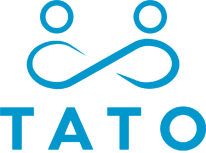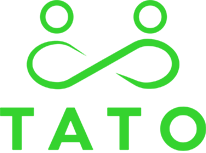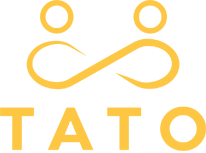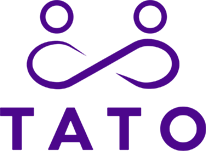 If you are considering a career change to working as a psychotherapist this post is for you. You will find out what to expect on psychotherapy training and particularly transactional analysis training.
If you are considering a career change to working as a psychotherapist this post is for you. You will find out what to expect on psychotherapy training and particularly transactional analysis training.
Firstly, there are different approaches to training.
Types of Psychotherapy Training Course
The academic model in a university is different to an apprenticeship or competency-based model. Both models are based on meeting requirements. These will be a mixture of demonstrating competency, attaining certain skills and meeting specific requirements.
An academic model the training is driven by academic years or a set timescale. With this approach students/trainees are tasked with achieving skills and completing tasks within a set time-frame. In an apprenticeship models of training the meeting of the requirements are not linked to a specific timescale. The latter model can offer a great deal of flexibility in the process towards the goal of qualification.
The length of time of training and the emphasis on theory teaching and clinical practice can vary according to the modality or type of psychotherapy being studied. In general however there are five main areas to think about. Thinking about what to expect on psychotherapy training, the first area is learning about theory or studying a psychological model.
A Psychological Model
A psychological model or modality of psychotherapy is usually a set of theories and ideas about people and their psychology. Transactional analysis psychotherapy has theories about personality structure, child development, communication and relationship, groups. It also has set of theories about psychopathology. In more straightforward language, theory about how psychology can be problematic and mean that people have difficulties in living their lives. It is important in considering which training to choose that the model you select holds some fundamental truths for you. It needs to “makes sense” to you, so that you are studying a model that is congruent with your beliefs and values about people and how they function. In studying a psychological model the tasks will be to learn and understand the key theoretical concepts that are are part of the theory, and to understand how to apply them in working with clients.
Clinical practice – Seeing clients under supervision
The second aspect of training is that of gaining experience in working with clients. This is always done under supervision by a more experienced therapist.
Before seeing clients, trainees are usually asked to demonstrate that they can use counselling skills effectively to problem solve in a counselling situation. You will also need to show that you have a general foundation level of understanding of TA. Then you will begin to offer counselling and psychotherapy to your own clients. Most people usually beginning with two of three clients a week and build this slowly. You will attend supervision and play tapes to your supervisor of you working with your clients. Sometimes you will simply discuss the work you are doing. Supervision is a teaching and learning activity for the development of the trainee’s skill and competence in clinical work.
Personal Therapy – developing understanding of self, self-awareness and reflexivity.
Personal therapy and personal development is another key aspect of the training to work as a psychotherapist because self-awareness and self-knowledge are important qualities in an effective practitioner. Many courses will have a requirement for trainees to engage in a period of personal therapy. Some courses will require that therapy is for the duration of training. The purpose of therapy is to provide a significant experience of therapy. The therapist needs to have experienced therapy that is similar to the work they will be doing. Personal therapy is also for the support of the practitioner because the work can have an emotional and psychological impact. Working through one’s own personal psychological material helps us to be able to effectively work with others. Finally a good psychotherapist will have a consistent and robust habit of reflection because it supports their ongoing development and learning.
So, in addition to studying theory and seeing clients, what else can you expect on psychotherapy training?
Professional development
Even as a trainee once you begin seeing clients part of your development is to begin to develop your own specific areas of interest. Some of this might be in the form of specific shorter training. It might also be through reading, workshops, conferences and supervision. There are a variety of activities that can fall in to this category and all are about how you choose to develop your interests as a practitioner. So examples of what this might look like could be developing an interest in another modality perhaps CBT or EMDR. It might be about working with a specific client group or a particular way of working for example outdoor therapy.
Mental health placement
Part of the requirement for psychotherapists in the uk is to be familiar with the management and treatment of mental health in the uk because there will be times when you may need to refer clients on to other professionals. The mental health placement will involve you meeting a variety of people. Including service users with more severe mental health problems, staff who work with people in this area and gaining an understanding of the services available and approaches used.
Next Steps?
Training to work as a psychotherapist involves a wide education including the development of theoretical knowledge and understanding, broad clinical experience and personal development through self-awareness and self-knowledge. It is about developing as a professional with all the experience, skill, ethical awareness and responsibility that entails, along with the rich rewards of a stimulating and rewarding field of work.
Now you have a better ideas about what to expect on psychotherapy training what are the next steps?
 A TA101 is a great way to experience studying a psychological model, go to our events page to check out the next date. Or read about this two day course here.
A TA101 is a great way to experience studying a psychological model, go to our events page to check out the next date. Or read about this two day course here.
Our Foundation Certificate course is a one year part time course which is also the first year of our clinical training. Read more here.
Or, if you would like to find out more about this type of training and career then we offer free informal chat with one of our trainers. Contact us on contact@tatraining.org to arrange a time and date.




